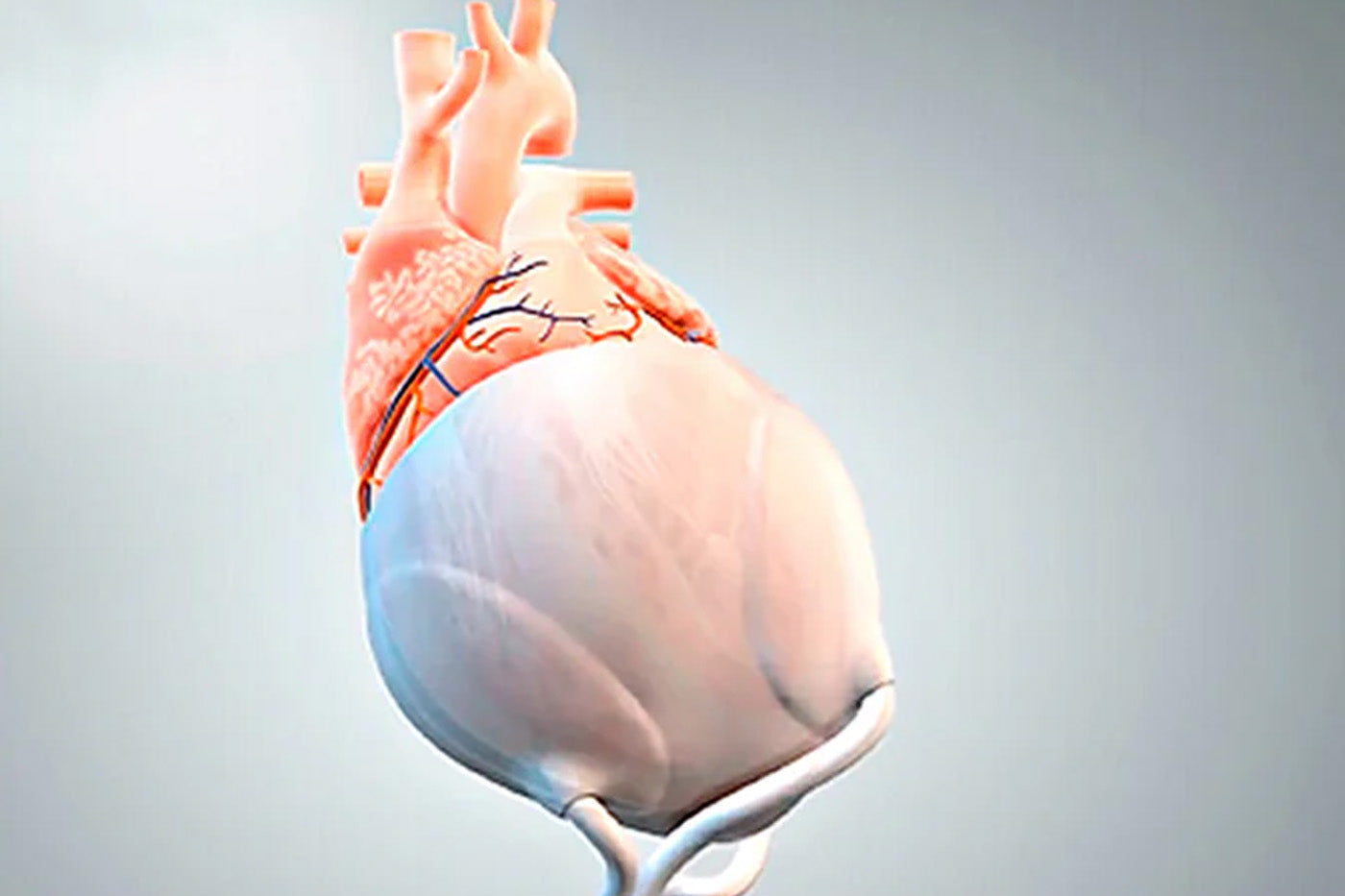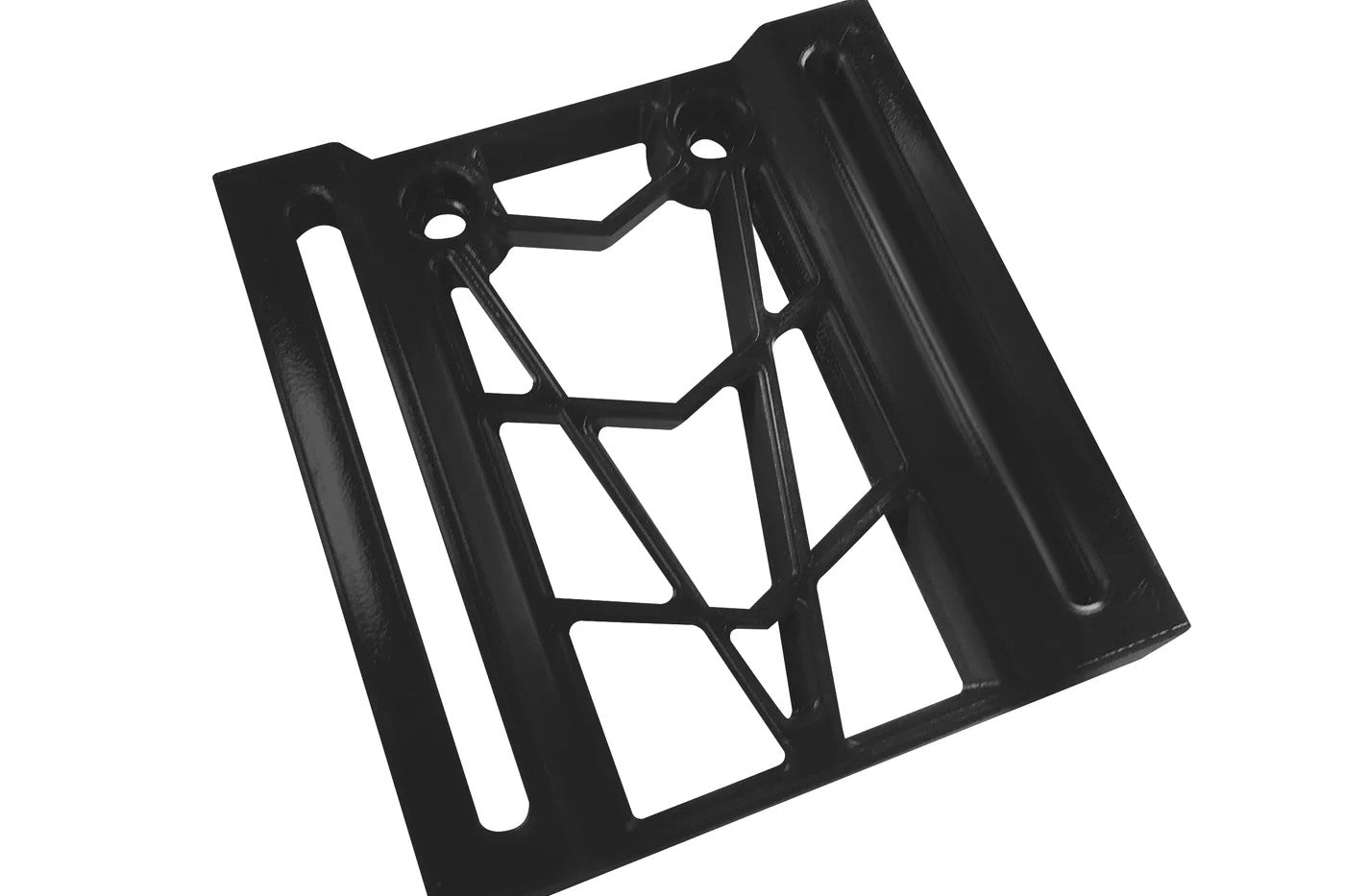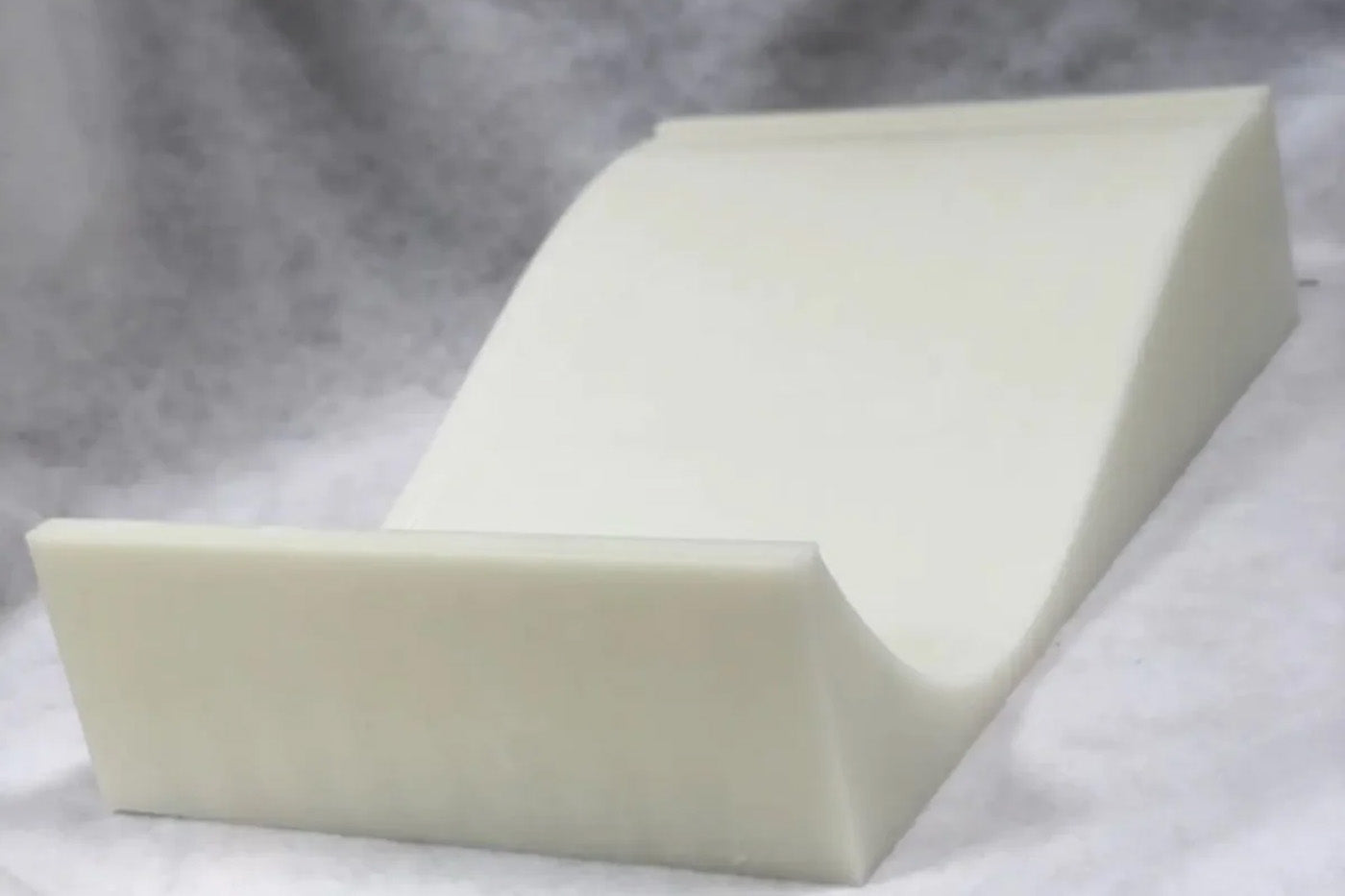In the future, novel polymers will make it possible to individually produce artificial elastic tissue replacements for pericardium, heart valves or blood vessels. The PolyKARD project is developing biomimetic polymers that can mimic the mechanical properties of pericardial tissue. Custom-made implants will be produced using 3D printing and electrospinning. In addition, a 3D printer is to be developed for the first time that can produce Class III medical devices. The PolyKARD partners - AdjuCor GmbH, the Fraunhofer Institute for Applied Polymer Research IAP, the NMI Natural Sciences and Medical Institute, Young Optics Europe GmbH and pro3dure medical GmbH - want to continue manufacturing the implants until the first clinical studies, probably in 2022, advance.
Heart disease is one of the most common causes of death. Around 23 million people worldwide suffer from heart failure - and the number is rising. In contrast, the number of heart transplants has stagnated at approx. 3000 transplants per year worldwide. Artificially manufactured implants could help many sufferers who are waiting for a donor organ. 3D printing of precisely fitting implants has become indispensable in medicine, for example in orthopedics or dental surgery. However, the need for research is significantly greater for implants that are intended to replace elastic tissue because the demands on the materials are high: they must maintain their mechanical properties over many years, be 100% durable and biocompatible and must not cause any rejection reactions from the immune system. The latter is particularly important for materials that are permanently in contact with the body.
New polymers for modern printing technologies and individual medical technology
As part of the PolyKARD project, biomimetic polymers are being developed that are intended to imitate the biological and mechanical material properties of the pericardium, also known as the pericardium. The pericardium is a collagen-containing and mechanically extremely stable structure that surrounds the heart. The pericardium of cattle or pigs is already used clinically to replace human heart valves or to reconstruct blood vessels. However, processing the animal tissue is expensive and does not guarantee long-term mechanical stability. The unreliable quality due to the great variability between donor animals as well as ethical and religious aspects are also problematic.
»In the project, we are developing biomimetic pericardial replacement materials that can be used, for example, for artificial pericardium, heart valves, blood vessels, stents, tendons or septal closures. The special thing about it is that the implants are made of photopolymers and can be manufactured individually using a 3D printer or electrospinning. The monomers are used as inks or Resins developed. They only polymerize when they are irradiated with UV light," explains Dr. Wolfdietrich Meyer, who leads the project at Fraunhofer IAP in Potsdam. The research team at Fraunhofer IAP is synthesizing a photocrosslinkable material that consists of different polyurethane segments and collagen components.
Elastic, biocompatible and durable
The newly synthesized polymers are examined for in vitro cytotoxicity at the NMI in Reutlingen according to DIN EN ISO 10993-5. When processing the polymers, various 3D printing manufacturing processes are used on the one hand, and so-called electrospinning is used on the other. At the NMI, this spinning process creates porous structures that can grow together with the patient's own tissue. The carrier substrates produced are characterized with regard to their mechanical and biological properties. A particular focus is placed on replicating the mechanical properties of the pericardium and the growth behavior of cells.
The first application of the biomimetic polymer is to print a novel surface for an extravascular cardiac support system. The system from Munich-based AdjuCor GmbH is based on a patient-specific, mechanical implant, which is positioned completely outside the bloodstream (extravascular) in the pericardial cavity around the epicardial artificial pericardium tissue from the 3D printer surface of both heart chambers. »A biomimetic pericardium replacement material would only cause minor immune reactions and would therefore lead to a gentle healing phase. This means intensive care and hospital stays can be further shortened," explains heart surgeon and CEO of AdjuCor Prof. Stephen Wildherd.
On the way to market maturity
In order to be approved on the market for clinical applications in the future, both the new photopolymers and the processing methods must meet extensive requirements. For the large-scale production of photopolymers, the GMP guidelines (Good Manufacturing Practice, GMP for short) must be adhered to. They ensure the quality of the production processes and environment. The company pro3dure medical GmbH Iserlohn will establish the upscaling process of the photopolymers and the resin synthesis taking this GMP into account.
Young Optics Europe GmbH in Jena uses the 3D printers they have developed to process biocompatible photopolymers for products in medical classes I – IIa. As part of the PolyKARD project, a 3D printing system for the production of Class III medical devices is to be established for the first time, which also enables complete traceability of the raw materials used for production.
Using holistic chemistry to create new materials The three-year PolyKARD project started in April 2019 and is run by the VDI Association of German Engineers.v as a project sponsor, supported on behalf of the BMBF as part of the funding measure “Material innovations for healthy living: ProMatLeben – Polymers” (FKZ: 13XP5087D). At 4. The partners will meet again in February 2020 to present the first milestones. “We have already successfully synthesized and printed the first elastic photourethane resins from non-toxic starting materials,” explains Wolfdietrich Meyer.
»In the future, we would like to implement the medical concept of holism even more in our chemistry. We want to develop more materials based on renewable raw materials for 3D printing and electrospinning that are biocompatible and can be processed with the highest precision. We also keep an eye on the life cycle of the component and, if necessary, environmentally friendly disposal," says Meyer.
The first application of the pericardial replacement material is to produce a novel surface for an extravascular cardiac support system using 3D printing. © AdjuCor GmbH
| Project |
“Synthesis of a biomimetic pericardial polymer for cardiac applications” (PolyKARD)
|
|
Funding
|
BMBF | Material innovations for healthy living: ProMatLeben – Polymers
|
| Project sponsor |
VDI Association of German Engineers e.v Duration: 03.2019 – 02.2022
|
| Funding code |
12XP5087D
|
| Partner |
AdjuCor GmbH | Garching
Fraunhofer Institute for Applied Polymer Research IAP | Potsdam
NMI Natural Science and Medical Institute | Reutlingen
Young Optics Europe GmbH (subsidiary of BURMS)| Jena
pro3dure medical GmbH | Iserlohn
|




